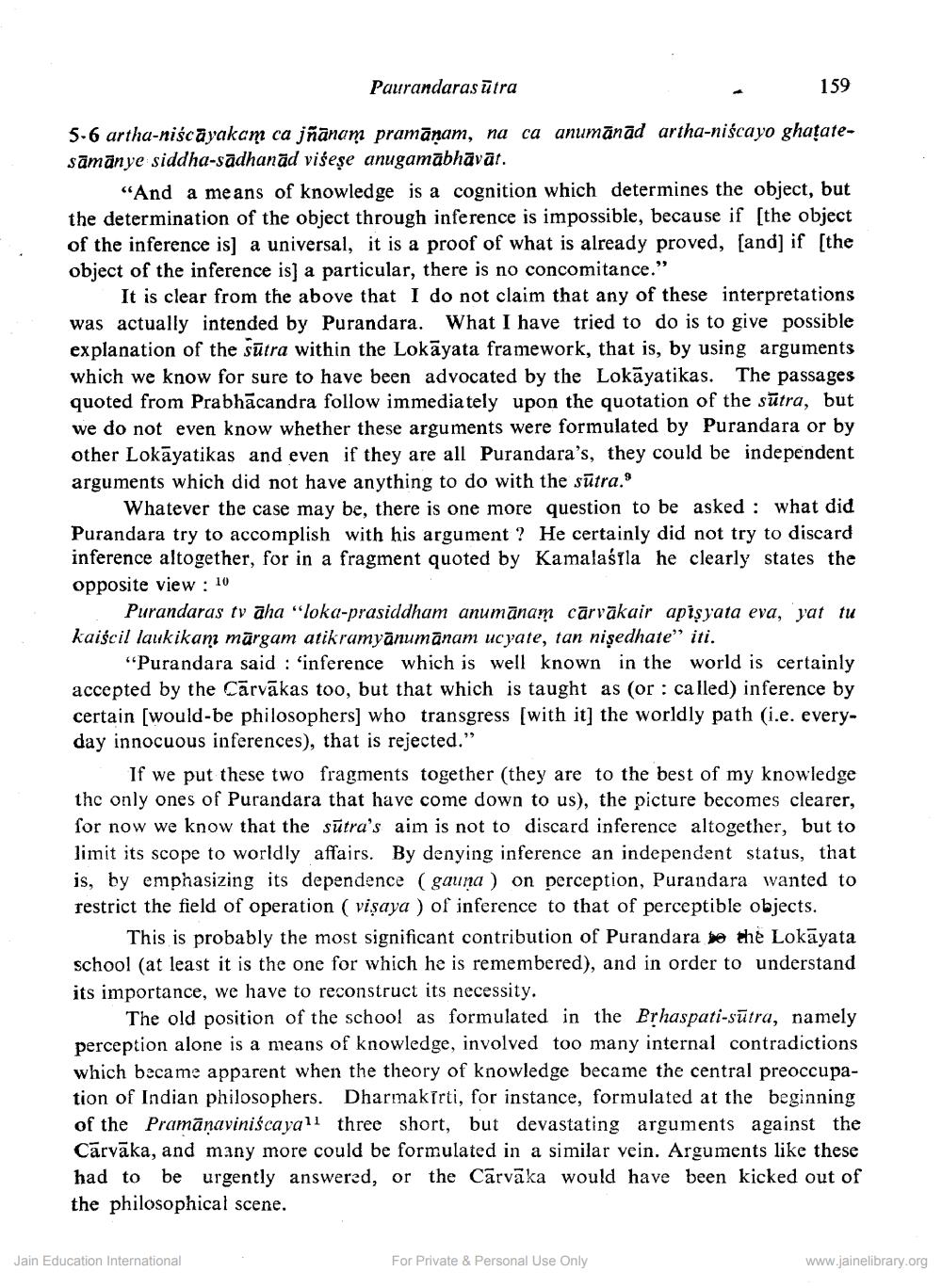Book Title: Paurandara Sutra Author(s): Eli Franco Publisher: Z_Aspect_of_Jainology_Part_3_Pundit_Dalsukh_Malvaniya_012017.pdf View full book textPage 6
________________ Paurandaras tra 5-6 artha-niscayakam ca jñānom pramāṇam, na ca anumānād artha-niścayo ghatatesamanye siddha-sadhanad viteze anugamābhāvāt. 159 "And a means of knowledge is a cognition which determines the object, but the determination of the object through inference is impossible, because if [the object of the inference is] a universal, it is a proof of what is already proved, [and] if [the object of the inference is] a particular, there is no concomitance." It is clear from the above that I do not claim that any of these interpretations was actually intended by Purandara. What I have tried to do is to give possible explanation of the sutra within the Lokayata framework, that is, by using arguments which we know for sure to have been advocated by the Lokayatikas. The passages quoted from Prabhacandra follow immediately upon the quotation of the sutra, but we do not even know whether these arguments were formulated by Purandara or by other Lokayatikas and even if they are all Purandara's, they could be independent. arguments which did not have anything to do with the sutra." Whatever the case may be, there is one more question to be asked: what did Purandara try to accomplish with his argument? He certainly did not try to discard inference altogether, for in a fragment quoted by Kamalaśfla he clearly states the opposite view: 10 Purandaras tv aha "loka-prasiddham anumanam cārvākair aptsyata eva, yat tu kaiścil laukikam mārgam atikramyānumānam ucyate, tan nişedhate" iti. "Purandara said: 'inference which is well known in the world is certainly accepted by the Carvākas too, but that which is taught as (or: called) inference by certain [would-be philosophers] who transgress [with it] the worldly path (i.e. everyday innocuous inferences), that is rejected." If we put these two fragments together (they are to the best of my knowledge the only ones of Purandara that have come down to us), the picture becomes clearer, for now we know that the sutra's aim is not to discard inference altogether, but to limit its scope to worldly affairs. By denying inference an independent status, that is, by emphasizing its dependence (gauna) on perception, Purandara wanted to restrict the field of operation (visaya) of inference to that of perceptible objects. This is probably the most significant contribution of Purandara be the Lokayata school (at least it is the one for which he is remembered), and in order to understand its importance, we have to reconstruct its necessity. The old position of the school as formulated in the Pṛhaspati-sutra, namely perception alone is a means of knowledge, involved too many internal contradictions. which became apparent when the theory of knowledge became the central preoccupation of Indian philosophers. Dharmakirti, for instance, formulated at the beginning of the Pramanaviniscaya11 three short, but devastating arguments against the Carvāka, and many more could be formulated in a similar vein. Arguments like these be urgently answered, or the Carvaka would have been kicked out of the philosophical scene. Jain Education International For Private & Personal Use Only www.jainelibrary.orgPage Navigation
1 ... 4 5 6 7 8 9 10
